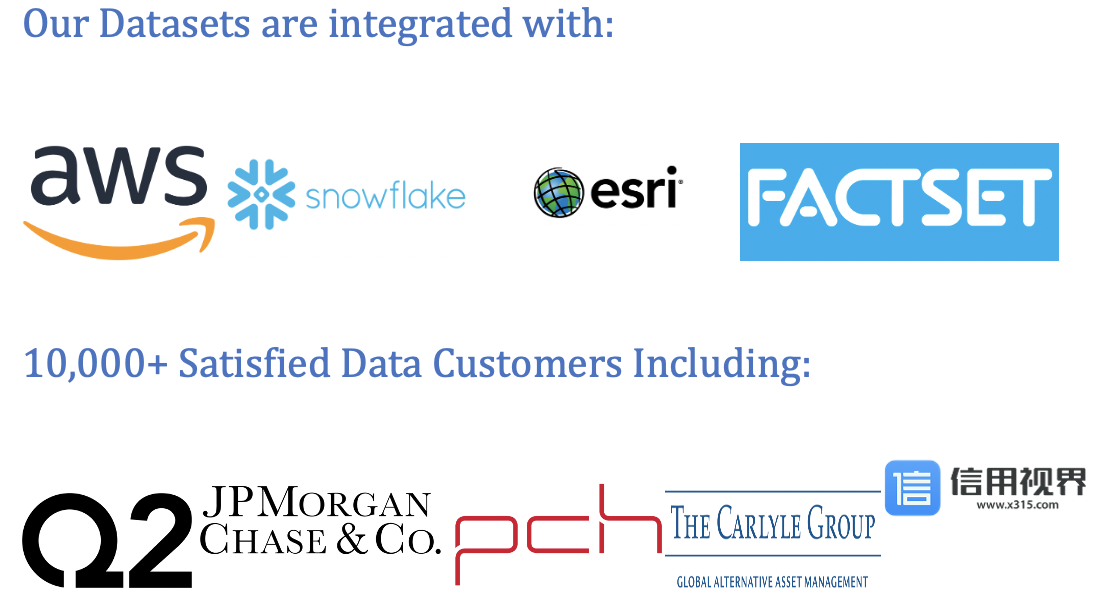
Top Website Analytics Data Providers
Understanding Website Analytics Data
Website analytics data is gathered using specialized tools such as Google Analytics, Adobe Analytics, and others. These tools track user activities on a website, including page views, clicks, session durations, referral sources, and more. By analyzing website analytics data, businesses can gain insights into user behavior, content performance, marketing effectiveness, and overall website health.
Components of Website Analytics Data
Key components of website analytics data include:
- Traffic Sources: Information about where website visitors come from, such as search engines, social media platforms, referral websites, direct visits, and paid advertising campaigns.
- User Behavior: Data on how visitors interact with the website, including pages visited, time spent on each page, navigation paths, and interactions with elements like forms, buttons, and links.
- Conversion Metrics: Metrics related to desired actions taken by visitors, such as form submissions, purchases, downloads, or other conversions, allowing businesses to measure the effectiveness of their website in achieving goals.
- Demographics and Interests: Insights into the characteristics and preferences of website visitors, such as age, gender, location, interests, and device used, enabling businesses to tailor their content and marketing efforts accordingly.
- Site Performance: Data on website performance indicators like page load times, bounce rates, exit rates, and error pages, helping businesses identify areas for optimization to improve user experience and engagement.
Top Website Analytics Data Providers
- Leadniaga : Leadniaga offers comprehensive website analytics solutions with advanced tracking capabilities, customizable dashboards, and actionable insights to help businesses understand and optimize their online performance effectively.
- Google Analytics: Google Analytics is a widely used web analytics platform that provides detailed insights into website traffic, user behavior, and conversion metrics, offering businesses valuable data to measure and improve their online presence.
- Adobe Analytics: Adobe Analytics offers robust analytics tools for tracking and analyzing website performance, audience segmentation, and marketing attribution, empowering businesses to make data-driven decisions to drive growth and success.
- Mixpanel: Mixpanel specializes in advanced user analytics and behavior tracking, offering businesses real-time insights into user engagement, retention, and conversion funnels, enabling them to optimize their digital experiences for maximum impact.
- Heap Analytics: Heap Analytics provides automatic event tracking and behavioral analysis for websites, allowing businesses to capture and analyze user interactions without the need for manual tagging, providing insights to drive product improvements and marketing strategies.
Importance of Website Analytics Data
Website analytics data is essential for various stakeholders in the following ways:
- Performance Measurement: Website analytics data helps businesses measure the effectiveness of their online presence, track key performance indicators, and evaluate the success of digital marketing campaigns and initiatives.
- User Experience Optimization: By analyzing website analytics data, businesses can identify user pain points, improve navigation, streamline conversion paths, and enhance overall user experience to drive engagement and satisfaction.
- Content Strategy: Insights from website analytics data inform content strategy decisions, helping businesses create relevant, valuable, and engaging content that resonates with their target audience and drives desired actions.
- Marketing Optimization: Website analytics data guides marketing efforts by providing insights into audience behavior, preferences, and interests, allowing businesses to refine targeting, messaging, and channel allocation for maximum impact and ROI.
Applications of Website Analytics Data
Website analytics data is utilized in various applications and use cases, including:
- E-commerce Optimization: Businesses use website analytics data to optimize e-commerce platforms, improve product merchandising, and streamline the checkout process to increase conversions and revenue.
- Lead Generation: Website analytics data helps businesses identify high-value leads, track their journey through the sales funnel, and optimize lead generation strategies to drive conversions and sales.
- Content Performance Analysis: Website analytics data informs content marketing efforts by identifying top-performing content, understanding audience engagement patterns, and refining content strategy to attract and retain visitors.
- Conversion Rate Optimization: Businesses use website analytics data to analyze conversion funnels, identify bottlenecks, and implement A/B testing and optimization strategies to improve conversion rates and maximize ROI.
Conclusion
In conclusion, website analytics data plays a crucial role in helping businesses understand and optimize their online performance. With Leadniaga and other leading providers offering comprehensive website analytics solutions, businesses can leverage data-driven insights to track user behavior, measure website performance, and optimize digital strategies effectively. By harnessing the power of website analytics data, organizations can improve user experience, drive conversions, and achieve their business objectives in today's competitive online landscape.
Our Datasets are integrated with :



10,000+ Satisfied Data Customers including :








